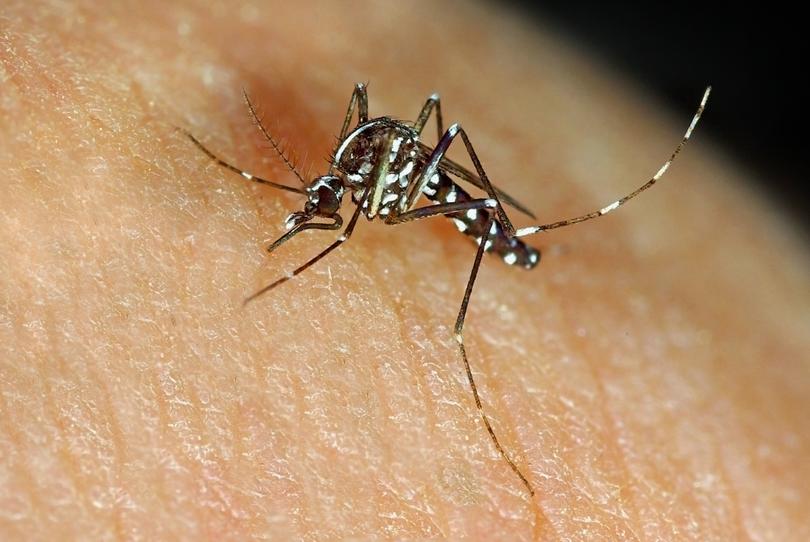‘As if I was dying’: Dream Bali holiday turns to nightmare after mother-of-three gets dengue fever
‘I am not exaggerating when I say that in the night I was in such pain everywhere it felt as if my organs were shutting down.’

Having just landed in the UK after a dream holiday in Bali, Debra Morgan was exhausted, but she put this down to the 18-hour flight.
The next morning, though, she woke feeling “horrendous” and soon realised it was more than post-travel tiredness.
“I was shaking and shivering and could not get warm,’ says Debra, 57, a dog walker from Upton, Chester.
“If I touched my skin, it hurt. I had no energy, a hideous headache and I ached all over.”
ROAM. Landing in your inbox weekly.
A digital-first travel magazine. Premium itineraries and adventures, practical information and exclusive offers for the discerning traveller.
By continuing you agree to our Terms and Privacy Policy.Her temperature was 39c (normal is 36c) but a COVID test was negative.
The mother-of-three returned to bed, using her mobile to call her husband Owen, 53, an aircraft engineer, who was downstairs, to ask for a hot water bottle as she was too weak to walk.
“I am not exaggerating when I say that in the night I was in such pain everywhere it felt as if my organs were shutting down, and I had a strange sense of dread, as if I was dying,” says Debra.
“It was the worst thing I’ve ever gone through.”
The next day, Owen helped her to the GP surgery, where a nurse took one look at Debra — by now visibly sweating — and, having heard she’d been in Bali, said: ‘I think it’s dengue fever.”
Debra was sent straight to hospital, where she spent a week on antibiotics for a dangerously high fever.
Dengue fever is a potentially deadly mosquito-borne infection, and cases are rising among British holidaymakers, according to the UK Health Security Agency’s (UKHSA) data.
In 2023, there were 634 dengue cases reported in returning holidaymakers across England, Wales and Northern Ireland.
This compares with 448 in 2022 and an average of 505 each year in the five years between 2015 and 2019.
Cases are surging globally, too, with a ten-fold rise between 2000 and 2019, hitting an all-time high last year, with 6.5 million cases and more than 7,300 dengue-related deaths.
What’s more, dengue fever is now being reported in areas once untouched by the infection, including in Croatia, France, Spain and Italy, while numbers are already three times what they were this time last year in Latin America, a popular luxury holiday destination.
I was so ill, I lost half a stone in a week and felt so weak,
The infection is passed on in the bite of a female mosquito. And while for many — 75 per cent of patients, according to Dr Philip Veal, a consultant in public health at the UKHSA — it causes no symptoms, or only mild ones, others will develop a sudden high fever.
The fever is often accompanied by severe headache and pain behind the eyes, muscle and joint pain, nausea, vomiting, abdominal pain and loss of appetite.
These cases should also resolve within days with paracetamol to help with the temperature and pain (anti-inflammatories such as ibuprofen should not be used as they can cause bleeding problems if you have dengue).
However, around 5 per cent of patients, like Debra, will develop severe dengue with more extreme versions of the symptoms — which can include ‘breakbone fever’, which can bring severe joint pain and haemorrhage — and while this is rare among holidaymakers, it can be fatal.
Analysis published in the Journal of Travel Medicine in 2021 reported on nine people, with an average age of 32, who died of dengue fever between 1995 and 2020 after holidays in Mexico, Ecuador, Malaysia and Thailand.
“Severe dengue is more common in children, adolescents, older individuals and pregnant women,” Dr Veal told Good Health.
“It is also seen in those with certain underlying conditions including asthma, diabetes, obesity, high blood pressure, kidney disease, bleeding disorders and in those taking anticoagulant [anticlotting] medication.
“That is because any haemorrhage can quickly become serious for someone taking anticoagulants which stop blood clotting.”
While the infection is most common in south and south-eastern Asia, the UKHSA warns of an increase in cases among those returning from the Caribbean and Central America. (In Argentina, cases are so high that people have been panic-buying mosquito spray and supermarket shelves have been bare of it for weeks.)
What’s more, the UKHSA says, dengue is already “an emerging disease outside tropical areas, including parts of Europe”.
“Aedes aegypti, [the mosquito that causes most dengue cases globally] is now established in Cyprus, around the Black Sea and in the outermost region of Madeira,” says Dr Veal.
“Aedes albopictus [a type that causes most infections in Europe] is established in a large part of Europe,” he adds.
“In southern Europe, more precisely in Italy, France, eastern Spain and on the east coast of the Adriatic Sea, the mosquito is established and is gradually spreading to the northern latitudes of Europe.
“This is because aedes albopictus is able to settle in more temperate regions, can tolerate temperate winters and the eggs can survive temperatures as low as -10c.”

Dr Veal says multiple factors are pushing the surge in cases, including ”increased global travel, climate change expanding the geographical range of aedes mosquitoes, and urbanisation, with densely populated areas providing ideal breeding grounds”.
Steps to avoid dengue include using insect repellent containing 50 per cent DEET, and covering exposed skin.
Air conditioning can also help as mosquitos prefer warm, humid conditions.
Sleeping under an insecticide-treated bed net is not thought to be as effective for preventing dengue, as the aedes mosquito, unlike other types, also bites people during the day.
When Debra and Owen set off in February to Bali for a 16-night holiday, they took only insect repellent, as they thought they’d be safe where they were staying in upmarket locations.
“Some people take malaria pills for Bali, but we didn’t think it necessary,” says Debra.
On March 11, they went on a boat from Bali to the nearby island of Lombok, and when their return boat was cancelled due to rough seas they decided to sleep at the ferry terminal.
“We had nowhere to stay and wanted to be sure we’d be ready when the seas were calmer as our flight home was in three days. So we — and other holidaymakers — decided to sleep at the ferry port, on the floor on our bags.”
That night, Debra recalls being bitten by mosquitoes.
“I could feel them on my legs and arms, even though I’d used mosquito spray.”

The next day they were able to return to their hotel, and then spent another two days in Bali before flying home.
Debra felt ill within hours of arriving back in Chester: “I felt so ill, I actually posted in a Bali travel Facebook group where I saw a post about dengue fever. I’d never even heard of it, so I asked if anyone else had had it.
“Someone replied it was rife and she’d had it and it took around four days to incubate.
“I cast my mind back and it was exactly four days since I had slept on the floor of the ferry port and been bitten so much.”
Following the advice of the practice nurse, Owen drove Debra to hospital where she was put on an intravenous drip of liquids as a precautionary measure while they waited for blood test results.
“I also had ECGs [tests to check the electrical activity of the heart] as my heart rate was all over the place. I had a chest X-ray, too.
“Then they told me my blood was being sent away to a tropical disease lab to test for dengue fever.”
After seven hours, she was allowed home but went back the next day because her temperature had soared. Readmitted and given more antibiotics, Debra spent the next week battling fever and pain.
“I was so ill, I lost half a stone in a week and felt so weak,” she says.
“After that, my fever finally went and I felt better, but for days after I was left with an awful headache that no medicine could touch.”
Two months on, Debra still feels weak.
“I love Bali, it’s our favourite destination, but this has made me more cautious,” she says.
She is still puzzled as to why her husband was not affected. But Dr Veal says some travellers are more at risk than others, though who and why is not clear.
“The fact is, all travellers to dengue endemic countries are at risk,” he says. “It’s crucial people protect themselves.”
